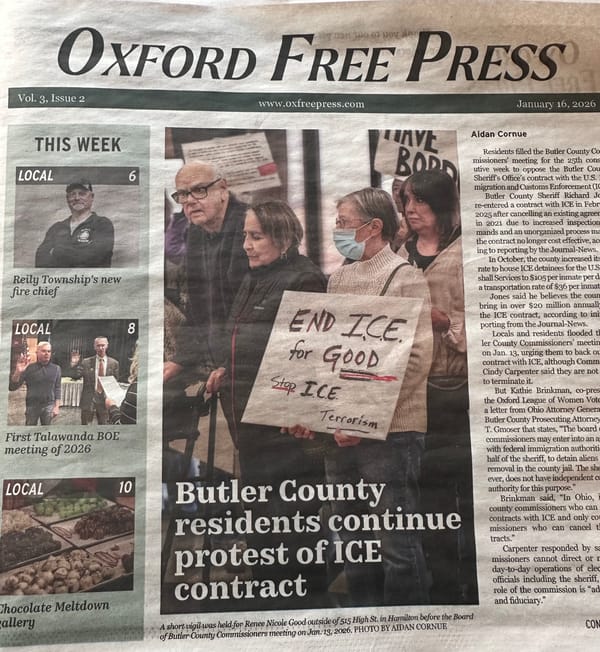The State: Actor or Arena?
I lean toward viewing the state as an actor.
In yesterday's post I discussed how political scientists define the state, especially in relationship to its monopoly over force, and my own concerns about the long-term consequences of a loss of state capacities. There is another aspect of the state that is worth discussing - the degree to which the state shapes the landscape in which political competition happens.
For decades political scientists have debated a question - is the state an actor or an arena? If the state is an actor, that means it can coordinate behavior across agencies and "act." If the state is an actor it can implement a plan, leverage the resources of the state to achieve a desired end. It also means that the state itself has agency, and might oppose other actors in society like organized interests, the military, or other groups. But if the state is an arena, that means it is merely a site where contestation between groups happen, it doesn't itself participate in those conflicts.
Lisa Anderson argued decades ago that whether the state is an actor or an arena is an "empirical question." By that she means we cannot assume one way or the other, we have to assess a state in its particular circumstances, look at the evidence and see if there is coordinated action across agencies or not.
In the present moment, it is a useful lens. From one perspective, there appears to be coordinated action - Elon Musk's cost-cutting extravaganza. But that is actually an initiative that is driven by one or a few offices forcing compliance across agencies. And Musk's DOGE initiative is actually counter to the state's goals - while it may be in someone's interests to reduce the scope of the state, it most certainly is not in the state's interest to do so. That's why we see so many forms of resistance emanating from state institutions. Some agencies reporting "cost cutting" to DOGE that had actually already happened under the Biden administration. Some are not letting DOGE operatives in the door.
This all points to how unusual it is to see coordinated action across a state. One can envision an effort to cut costs that would have buy-in across the state. If faced with an external threat, for example, state agencies might be willing to reduce their scope in service of a larger goal, protecting the existence of the state.
A stronger claim is that the widespread resistance to DOGE is evidence that the state is an actor. Individuals, offices, and agencies are acting to protect core functions of their agencies. But to truly make this argument you would have to parse out the difference between individual bureaucrat's actions - like resigning in protest, from actions taken by and across agencies to protect the agencies' interests. Only the latter supports the claim that the state is an actor. While there are reports of various actions that might fit into this category, it is difficult to know what is happening across such a wide array of institutions.
The other side of the equation is also difficult to assess. Is the state just an arena for social conflict where groups compete? That doesn't seem accurate either. While there is tremendous evidence that the most organized groups get the most concessions from the state, that is different than saying the state itself is a value-neutral site of conflict.
I personally lean toward viewing the state as an actor. While government-wide coordination is a rare feat, lesser forms of coordinated action are frequent and derived from shared values developed through public education, university education, and participation in public service.
Why does this question matter? In this case I think it helps to clarify the types of actions that would actually be required to achieve DOGE's objectives. If the state itself has agency, then the President needs the buy-in of state agencies to achieve his goals. So, for example, if the President had presented a clear-eyed assessment of the long-term implications of the current levels of national debt, he might have been able to create a sense of urgency around his priorities. If he had then solicited buy-in from a wide variety of actors who were qualified for their positions of leadership (instead of placing his allies over agencies hostile to them), and initiated discussions about what types of reductions were legal, realistic, and would still protect core functions of government, then he probably would have achieved far more than his current blitzkrieg will accomplish.
The irony about the Department of Government Efficiency is that it is likely just creating more, not less, waste of taxpayer money and bureaucratic time. I'm willing to be wrong on this point. But from what I have seen so far, Trump is like a micro-managing parent whose teenage children are certain to be rebellious for years to come.

